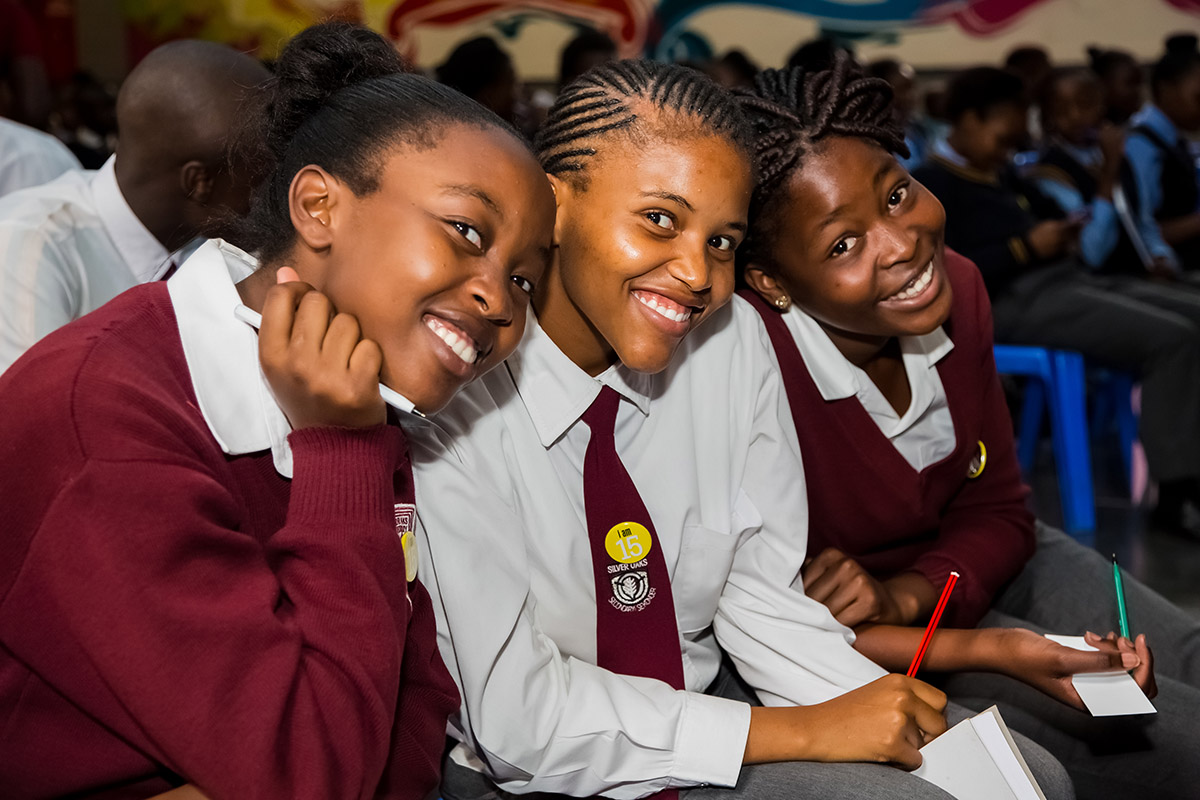One Resilient Common Future: Transforming our Commonwealth Through Education
May 12by Lilian Efobi
Investing in quality education for all, regardless of gender, ethnicity, or socio-economic background, must remain a top priority for all Commonwealth nations, for quality education is cornerstone of progress, and our collective future depends on harnessing its transformative power.
Nigerian Minister of Education, Professor Tahir Mamman
Investment in education isn’t confined to academic education. It includes skill development and continuing professional development. This integrated approach to education allows for diverse skill sets and knowledge bases, creating a more resilient and adaptable workforce.
From early childhood education to continued professional development, investing time and skills development in learners is essential for the new discoveries, practices, and opportunities which are at the fore of the strategy of Commonwealth ministers of government.
Therefore, in order to make education meaningful and practical, efforts must be made at all levels. Learners must invest the time and effort to learn new skills, while Commonwealth governments must ensure that educational institutions have enough resources and highly qualified instructors to serve the member states.
Years of schooling are not always necessary, but making the right educational investment can change one’s course in life. Ahead of the Commonwealth ministers of education meeting, the 56 member countries of the Commonwealth must harness their strengths to build resilience, unlock potentials and leverage the Commonwealth advantage to foster a peaceful, prosperous, digital, and connected Commonwealth. With the right investments in education, the Commonwealth of nations can lead the way for a global education transformation.
Investing in education is equivalent to investing in the development of human capital. Investing in education can take many different forms, such as starting and running schools as a business venture or getting a particular kind of education to improve one’s chances of finding work and earning money. The Commonwealth of ministers can also invest in the development of human capital considered important for development and prosperity in the Commonwealth.
Education is a fundamental human right. Of every 10 children who are out of school globally, 1.4 are from the Commonwealth. How can this figure be reduced?
Every country in the world guarantees a minimum level of education, a custom that has been maintained for centuries. Individuals and families invest in education, as do employers and governments. In fact, most countries allocate 3-5% of their GDP and 10-20% of government expenditure to education.
Educated populations are more likely to enjoy better health, economic prosperity, and social stability. Education empowers individuals to make informed choices, fosters critical thinking, and promotes peaceful and inclusive societies. It is the engine that drives human capital development, innovation, and entrepreneurship. Key commitments must be made to ensure that we brace ourselves for a resilient future, so as not to be caught unawares like the Covid era.
These commitments are as follows:
- The Commonwealth of Education Ministers should delve into a deeper understanding on the returns of education and unravel the gap and inaccessibility of education by certain vulnerable groups.
- Identify unemployed youths and devise strategies for interventions on employment. A good example can be creating a system where young people across the Commonwealth can register their skills to meet the required labour demands.
- Implement research and policy initiatives for evidenced impacts across the Commonwealth.
- Improve the learning curriculum through introduction of courses such as disaster risk management, crisis management, cultural exchange, ethics, and morals etc.
- Promote an inclusive learning environment across the Commonwealth by making provisions for learning resources for the differently abled, marginalised, and vulnerable groups.
- Girls’ education across the Commonwealth should be a priority, for when a girl is educated, then the community is educated, this will lead to greater inclusion and equity in society.
- There should be investments on teacher education and continuous training of the teaching workforce.
- Infusion of latest technology in teaching and learning across the Commonwealth through constant teacher empowerment.
- Investments in research, innovations, and data across the Commonwealth on education is key to ensuring that every child is protected from future losses.
- Learning recovery programs should also assist educators in better teaching fundamental skills, particularly through targeted, hands-on training and teacher guides linked to well-written textbooks for students.
- Every child in the Commonwealth should be reached out to and kept in school.
- Learning levels of learners should be assessed regularly.
The 21st century brings unique complex opportunities to the world, and through education, we can navigate these challenges to build resilience for the future, transform the Commonwealth, build an educated workforce that is the foundation and future of nations and economies across the Commonwealth.
Learn more about the meeting of Commonwealth Ministers of Education.






